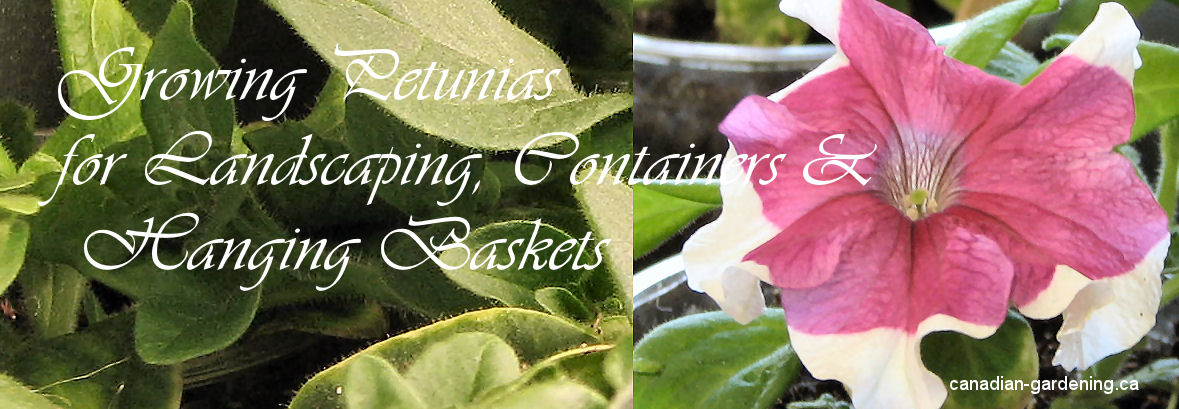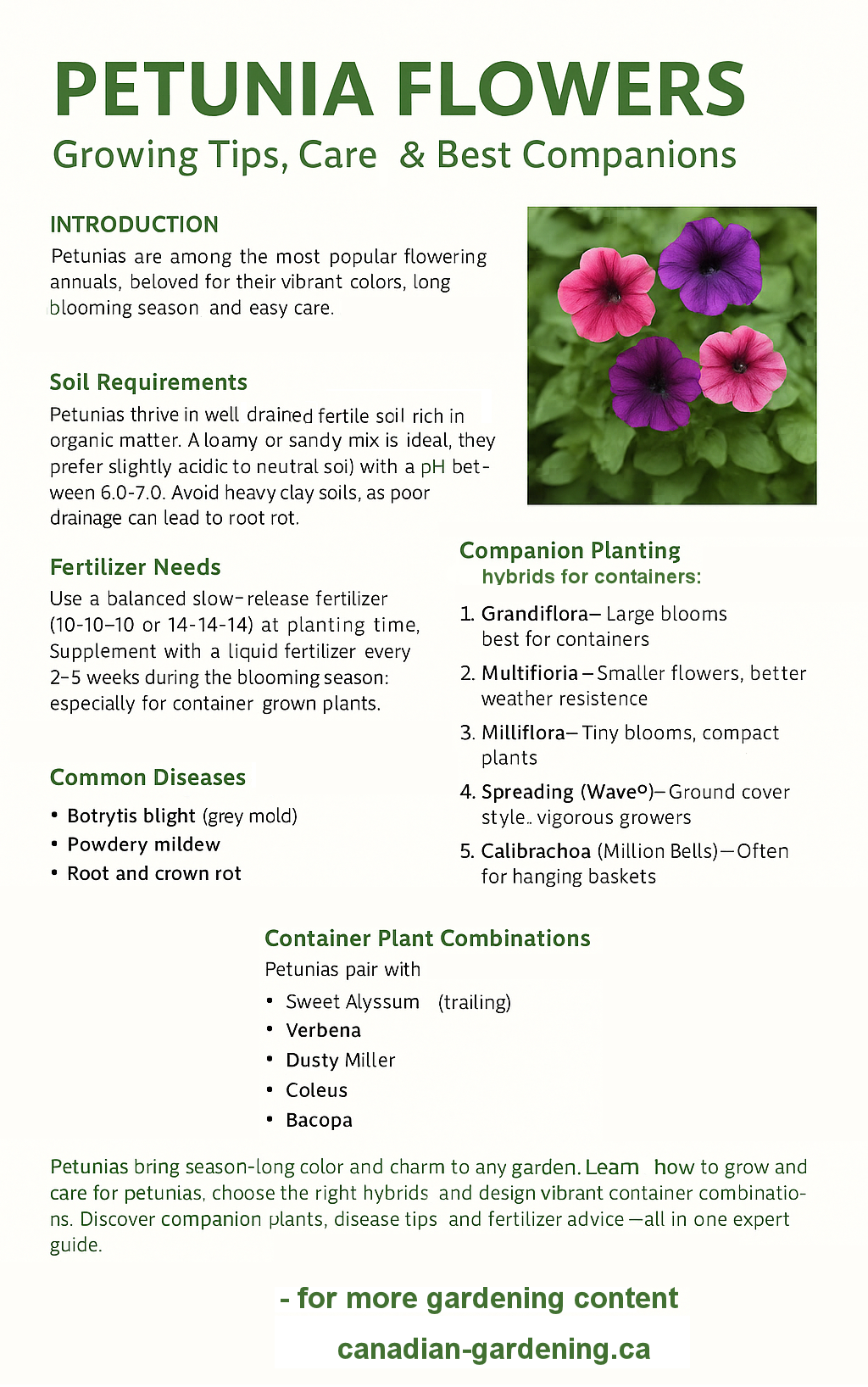
Petunia Flowers: Easy Colour for Containers and Garden Beds
Petunias are among the most popular flowering annuals — and for good reason. They offer vibrant colour, a long blooming season, and are easy to grow even for beginners. Perfect for garden beds, borders, hanging baskets, and containers. The best part is easy to make new plants from cuttings.
This guide covers everything you need to grow healthy, long-blooming petunias: when to plant, soil and fertilizer tips, choosing the right hybrids, companion plants, and simple disease prevention for low-maintenance success.
Do petunias get leggy?
Yes — petunias naturally stretch as they grow. A quick trim every few weeks keeps them compact and blooming. If you prefer truly low-maintenance flowers, calibrachoa (million bells) may be a better choice.

How to grow petunias from cuttings:
Growing petunias from cuttings is a great way to propagate your favorite varieties, especially since many petunias sold in stores are hybrids and may not grow true from seed.
Look for non-flowering stems, if possible—they root more easily.
- Cut a 4-6 inch (10-15 cm) stem just below a leaf node.
- Remove the lower leaves, leaving only 2-4 leaves at the top.
- Insert the cut end about 1-2 inches (2.5-5 cm) deep in soil.
- Keep the medium moist but not soggy. Cover cuttings with plastic dome. I use a clear plastic cup.
- Once roots are established, transplant into small pots with potting soil.
- Gradually acclimate to outdoor conditions if planting in the garden.
Soil Requirements:
Petunias thrive in well-draining, fertile soil rich in organic matter.
A loamy or sandy mix is ideal. They prefer slightly acidic to neutral soil with a pH between 6.0 and 7.0. Avoid heavy clay soils, as poor drainage can lead to root rot.
Maintaining the soil pH of 6.0 to 7.0.
Acidic soils below pH 5.5 can lead to poor growth, while overly alkaline soils may cause nutrient deficiencies.
Amend soil with compost or peat moss to adjust pH if needed.
Germination Requirements:
- Petunia seeds typically - germinate in 5 to 15 days - depending on conditions.
- Temperature: Optimal range is - 70-75°F (21-24°C)
- Light: Petunia seeds need - light to germinate — do not cover them with soil
- Humidity: Keep the soil - consistently moist, not water-logged
- Medium: Use a - fine seed-starting mix - for best results - or mix your soil with sand or perlite for better drainage
- Use a humidity dome or plastic cover to retain moisture and warmth until germination occurs, then remove it once the seeds sprout
Fertilizer Needs:
Use a balanced slow-release fertilizer (10-10-10 or 14-14-14) at planting time. Supplement with a liquid fertilizer every 2-3 weeks during the blooming season, especially for container-grown plants.
Look for blends with higher phosphorus (second number) for more blooms.
Common Diseases & Prevention:
- • Botrytis blight (grey mold)
- • Powdery mildew
- • Root and crown rot
Tips to prevent plant issues:
• Ensure good air circulation
• Avoid overhead watering
• Use sterile potting mix
• Remove any infected plants or leaves promptly
Companion Planting for Petunias:
Petunias make great companions in both beds and containers.
Ideal companions include:
- • Marigolds (pest deterrent)
- • Geraniums (similar care)
- • Salvia
- • Snapdragons
- • Lobelia These combinations enhance visual appeal and help with natural pest control.
Popular Petunia Hybrids:
- . Grandiflora Large blooms, best for containers
- . Multiflora Smaller flowers, better weather resistance
- . Milliflora Tiny blooms, compact plants
- . Spreading (Wave®) Ground cover style, vigorous growers
- . Calibrachoa (Million Bells) Often grouped with petunias, perfect for hanging baskets
Container Plant Combinations:
• Sweet Alyssum (trailing)
• Verbena
• Dusty Miller
• Coleus
• Bacopa
Choose a mix of upright, filler and trailing plants for a balanced and colorful container display.